If you're a fan of playing retro video games, chances are that you've experienced some titles on an emulator, or at least considered using emulation. Emulation software provides an easy way to play games that aren't otherwise accessible.
Compared to playing on original hardware, emulation come with some benefits as well as a few drawbacks. Let's consider the pros and cons of emulation so you can decide what's best for you.
What Is Emulation?
In case you're not familiar, emulation is the act of allowing one computer to act like another. In the case of video game emulation, software like Project64 mimics the hardware of a console like the Nintendo 64. This allows you to play games intended for that console on your computer, even though they wouldn't normally be compatible.
While most people think of video game emulation primarily as third-party software, it's more widespread than you might think. For example, Nintendo's Virtual Console service on the 3DS and Wii U, as well as the Switch Online NES and SNES collections, use software emulation to run older games.
We'll discuss emulation generally here; not all features are available with all emulators.
The Pros of Playing Games on an Emulator
Let's start with the positives and see some of the biggest draws for using an emulator to play video games.
1. Enhanced Graphical Quality
When you play games on an emulator, you'll probably notice the graphics look better than you remember from the actual console. The biggest reason for this is that older consoles used analog video outputs, like composite cables.
Analog signals are not as clear as modern digital video standards. They looked OK on older, smaller CRT displays, but these analog signals look even worse when blown up on a modern large HDTV.
Another reason is that in 3D titles, emulators can render polygons at higher resolutions than their original consoles, thanks to better hardware. This gives early 3D games on systems like the PlayStation and N64 a smoother look.
So when you use an emulator, you are seeing a perfect representation of the video signal from the system, potentially with some enhancements. To visualize this, compare the below video of The Legend of Zelda: Ocarina of Time on an emulator running in 1080p:
With footage of the game captured from an N64:
2. Save States
Save states make a lot of older games much more accessible. They allow you to save a snapshot of your current progress at any point, then return to it later. For games that don't have a save system built-in, or require tedious passwords, this makes stopping and picking up where you left off much more convenient.
Save states can also allow you to enjoy extremely difficult games by setting your own checkpoints. Instead of having to restart from scratch every time you die, you might create a new save state each time you clear a level.
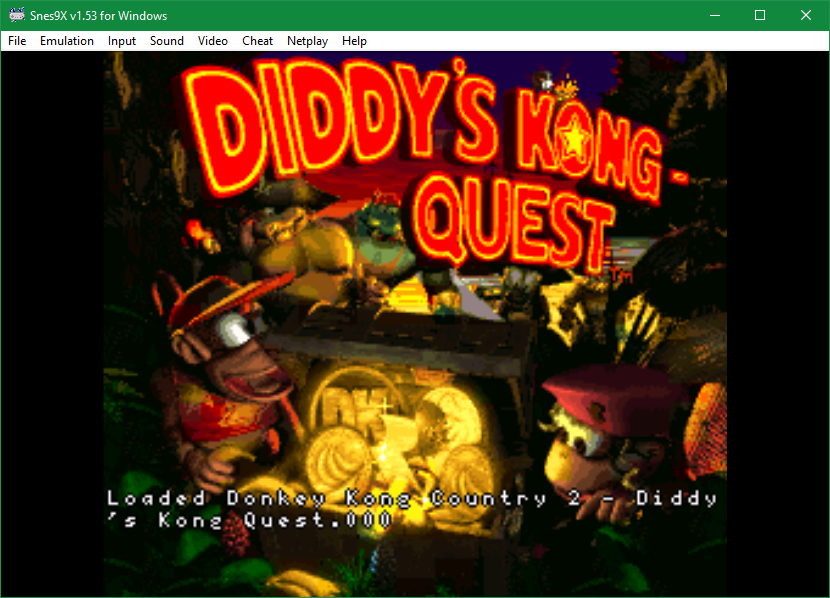
Finally, save states are a good way to "bookmark" a certain part in a game. Maybe you want to replay a certain boss without playing through the whole game again, or need to practice a speedrunning trick by resetting to a particular spot over and over.
3. Fast-Forwarding and Rewinding
Some emulators, depending on the console, support a fast-forward function. This can make games that play slowly much more bearable.
For example, in an RPG with slow player movement speed, you can hold down the fast-forward key to move around much faster than you could on the original system. They can also make it easy to skip long sections of dialog.
Depending on the emulator, you might also have access to a rewind function. This lets you go back in time a few seconds to undo mistakes, without worrying about a save state.
Not all emulators support this, and the features don't make sense in all games. But in some instances, it's a nice benefit.
4. More Control Options
A lot of classic games have few, if any, ways to customize the controls. Playing on an emulator lets you set up the controls however you see fit.
When using an emulator on PC, you can connect any compatible controller to your system, so you aren't limited to buying a USB adapter for the original controller. And nearly all emulators support the ability to completely customize your control scheme.
So if the original game's controls are uncomfortable or don't make sense with a modern gamepad, you can tweak them however you like. Some emulators even let you save multiple profiles for easy switching across games.
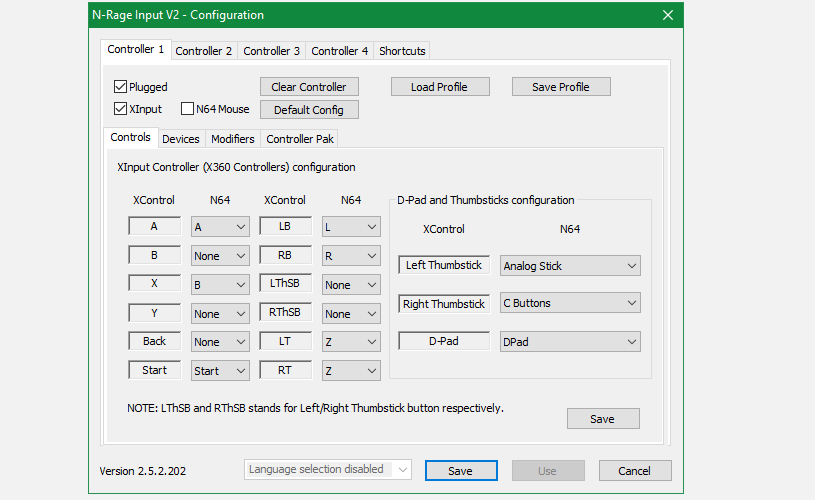
Of course, you can't override the programming of the original game. For example, using an Xbox controller to play Super Mario 64 on an emulator won't let you use the right stick to freely control the camera—it will just mimic the C buttons used to move the camera in steps.
5. Access to Cheats
Cheating devices, like the Action Replay and GameShark, were available for a lot of past consoles. These allowed you to input codes that modified games with cheats like unlocking all levels, giving you invincibility, or similar.
With emulators, you can access cheats like this right from the software. How to use them depends on the particular emulator, and not all games have cheats available. But if you want to experience a past favorite in an all-new ways, emulators provide a fun way to mess around.
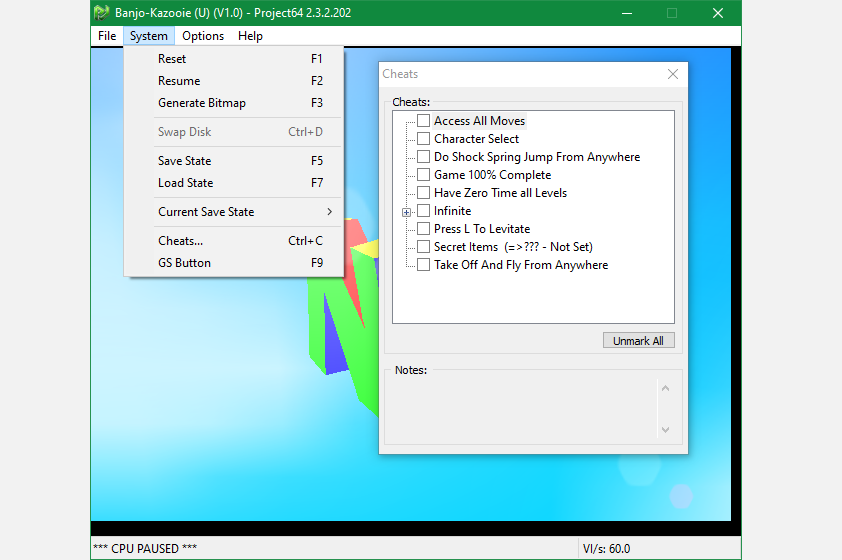
6. Fan Mods and Translations
Emulators provide a lot of value even beyond letting you play officially released games. Clever developers often release ROM hacks of classic games that remix the existing world, create all-new levels, combine elements from two games into one, and much more. Some mods, such as 4K texture packs, can even upgrade a game's visuals.
Similarly, emulators also allow you to play fan translations of games that never made it outside of Japan. With he provided files, you can mod a ROM to translate the game's text into English.
While these are of questionable legality, they are important for video game preservation and allow a huge audience to experience a game that would have no way to try it otherwise. And mods can breathe new life into old games.
The Cons of Playing Games on Emulators
Though there are lots of reasons to play games on emulators, it's not a perfect experience. Let's next look at some of the drawbacks of game emulation.
1. Not All Games Work Perfectly
Because emulators are only an approximation of the original console hardware, they aren't perfect. Depending on the game, emulator, and graphical plugins you use, you may run into problems ranging from minor visual glitches to game-breaking crashes.
For example, some texture effects may not look right on an emulator, or some music might not play correctly. As a more drastic example, the N64 game Mischief Makers has a level where you must solve basic math equations. On some emulators, however, a visual bug causes a box to appear instead of the question, so you can't pass that level (unless you get lucky and guess).
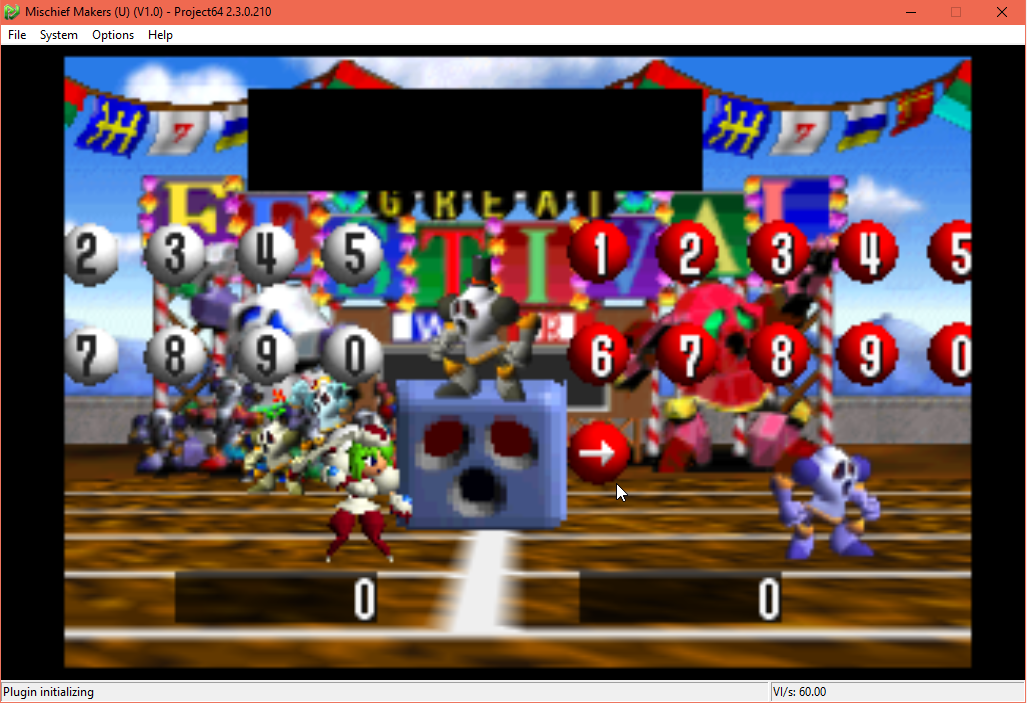
Some games may crash at particular points, or not even start at all. You can sometimes fix these issues by adjusting the plugins you use or modifying files in the game or emulator, but this troubleshooting can quickly become a hassle.
2. You Need a Proper Controller for Full Authenticity
As mentioned above, emulators allow you to map a game's controls however you like. This is great, as it makes games accessible with just a keyboard or whatever modern controller you have already.
However, not playing with the console's original controller takes some of the authenticity away. Playing NES titles with an Xbox controller can make the original game feel primitive, while not using the unique controllers for consoles like the N64 means you can't appreciate the control layout as much.
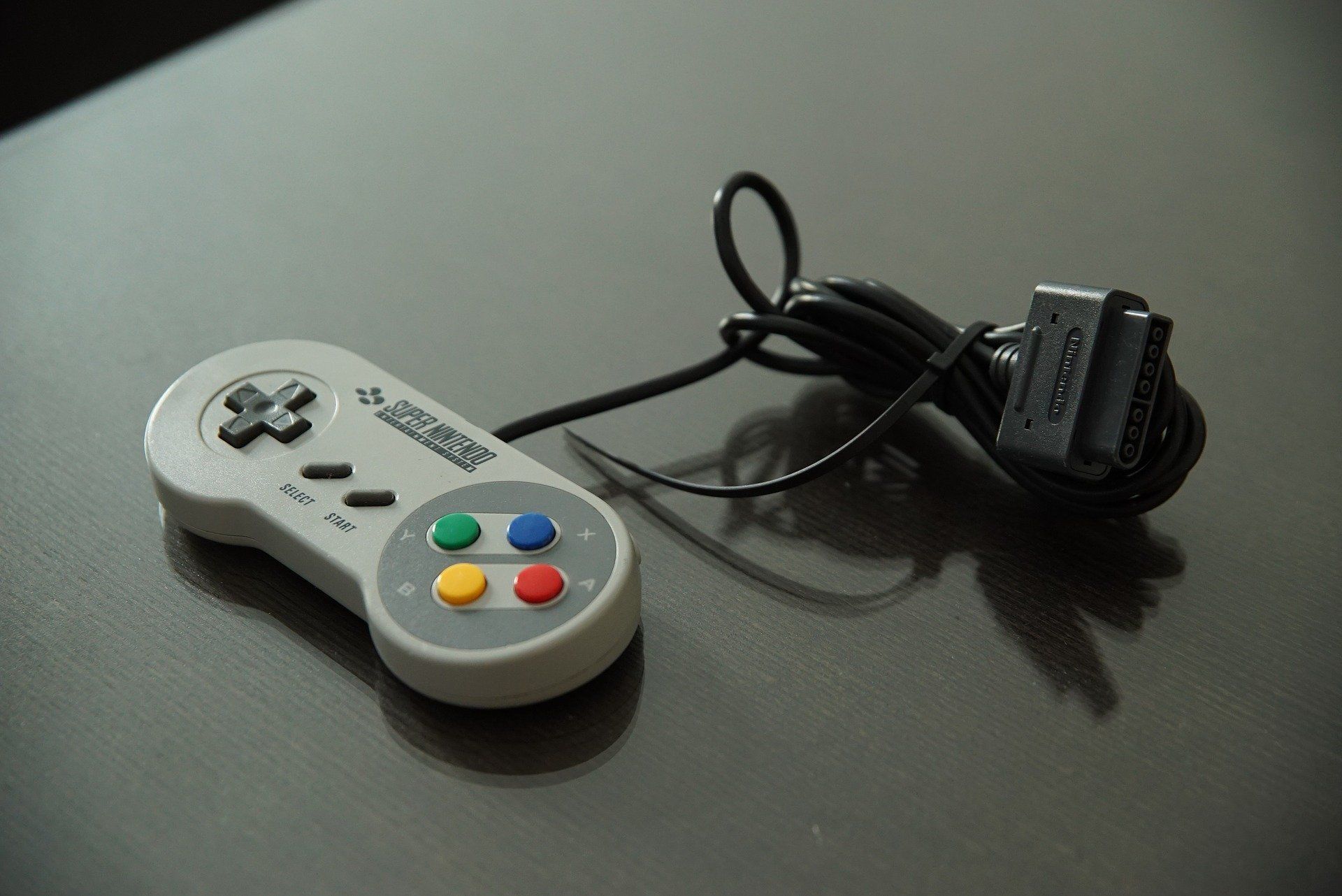
You can remedy this by purchasing replica USB controllers for your console of choice, which is a decent solution. However, these third-party controllers aren't usually as high-quality as the originals. If you have the original controllers for these consoles, you can usually buy USB adapters for them. Both options are handy, but come at an additional cost.
Ultimately, how much authenticity matters to you is a personal choice. Emulators, while great, can't provide the exact same experience as the original system.
3. Modern Features Can Ruin Your Experience
Features like save states and cheats are certainly convenient, but they can also prevent you from enjoying a game in its original form.
It's easy to get in the habit of abusing save states before every major action in the game, so that you can always change your mind or retry if you fail. Or if you get upset and can't beat a certain section, you might just turn on an invincibility cheat to skip it. If you're trying to experience a game in as close to its original form as possible, these functions can ruin that.
You don't have the temptation to use these on an actual system, so you have to improve at the game or find other ways to get past tough parts.
Emulators Are Awesome, but Not Perfect
We've looked at the biggest pros and cons of playing video games using an emulator. They look better, have convenience features, and offer more options than the original systems. However, they don't provide perfect playback, and offer a semi-authentic experience that could reduce your enjoyment of a title.
If you don't want to bother with emulation, keep in mind that there are other ways to play old games on your PC, such as modern copies on digital storefronts.
Image Credit: Brian P Hartnett Jr/Shutterstock
Comments
Post a Comment